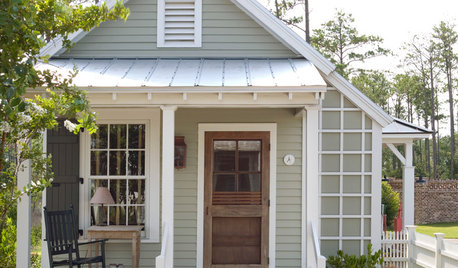Jumbo Loan
holcombe3
11 years ago
Related Stories

SMALL SPACES8 Benefits of Cottage Living
Scale back to dial up your quality of life, save money and more
Full StoryMore Discussions
Hi,
I need some advice on our home loan. I admit I get a little lost when the lender starts trying to explain all of this to me. From what I understood, we are getting whats called a jumbo loan of 600,000 on a new home construction. He said that if we sold it to a mortgage company we would have a lower interest rate (probably) locked in for 30 years but we would have to pay closing cost twice. If we keep it in house with him, the interest rate would be 5% but can only be done for 15 years. I guess Im a little confused on having to pay closing cost twice. Which would be the better route to go? Im worried that locking it in for 15 years is going to be an outrageous monthly payment


OttawaGardener
brickeyee
Related Professionals
Franklin Architects & Building Designers · Oakley Architects & Building Designers · Berkeley General Contractors · Holly Hill General Contractors · Jamestown General Contractors · Jefferson Valley-Yorktown General Contractors · North Smithfield General Contractors · Saginaw General Contractors · Syosset General Contractors · Van Buren General Contractors · Vermillion General Contractors · Waipahu General Contractors · West Whittier-Los Nietos General Contractors · Cherry Hill Home Stagers · Crestview Interior Designers & Decoratorskirkhall
holcombe3Original Author
rrah
holcombe3Original Author
brickeyee